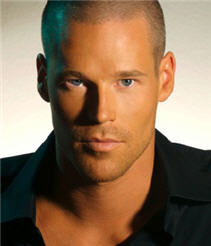This 'concept' is from a video I watched of DogIsHead. He's a pretty ballin' HU/6m high stakes player and used to be a coach on DeucesCracked. I haven't watched it in a few months, but I'll try to paraphrase what he was getting at.
Basically in poker you have two ways of improving. You have "Theory" and you have "Experience". It's hard to say which is better. There are plenty of people that can analyze hands and disect situations
well, but have a hard time winning in the games they play. There are other people who can beat the games they play in heartily, but can't explain the theory and reasoning why they are doing things as
well as others.
Experience relies on the fact that every human is a self-correcting system. Basically it says that if you are doing poor that with more hands, and more experience, over a sizable portion of time, the individual will learn from his mistakes and converge closer to perfect play. "Infinite experience will
push a poker player toward perfect play".
Theory, on the other hand, tries to approach perfect play from the very start. It essentially tries to show a shortcut to perfect play.
He uses the analogy that a poker player is a ship builder, and his poker game is the ship. Theory would play the
roll of the blueprint of the ideal poker ship. So with enough theory, one should be
able to build a perfect ship, without having to spend a infinite amount of time being a ship building before achieving the perfect ship.
This is getting kind of confusing in writing. However, it basically boils down to the fact that theory and experience compliment each other. You can become a good player by playing a lot of hands; however, depending on how efficiently you learn from your mistakes, it may take a long time. Likewise, you can become a good player by knowing enough theory.
It would be retarded to not learn and do both. You obviously want to put in hands. And it's obvious that you will get better the more experience you achieve. However, it is also apparent that you shouldn't just blindly play for the 1million hands it might take you to begin to understand the game. Instead, you should
study and learn, and essentially understand theory, so that you know why you are making these plays. And by doing so, you will
improve at a faster rate than if you just played, and you won't make as many mistakes in the process.
Also, I'
m with everyone that said that just because Antonious said he didn't read books, etc, doesn't mean he wasn't "studying". Some of the most important things I've learned about poker have come from thinking about the game while sitting in the hot-tub, or driving on the highway. Some of the best
study I have done comes from sitting down and analyzing complicated situations I face. And I wouldn't have been
able to understand what I needed to without the theory that I have learned from other sources.
Originally Posted by Jack Sawyer



 Reply With Quote
Reply With Quote



































